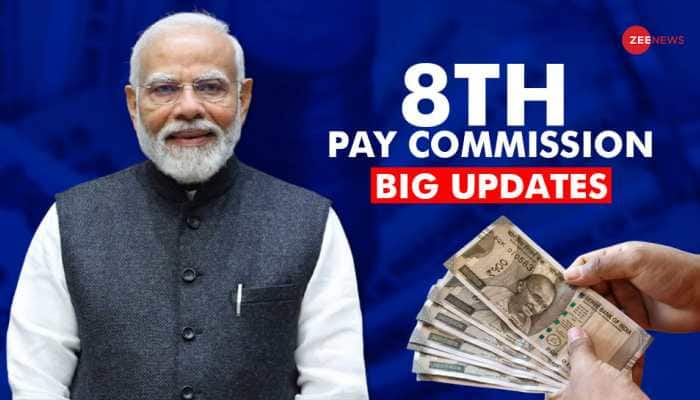EXPLAINED: Vladimir Putin vs Wagner Mercenary Group Rivalry - 5 POINTS on Latest Russia Crisis
This article delves into the complexities of the rivalry between Russian President Vladimir Putin and the Wagner Mercenary Group, shedding light on the infighting, blame games, and potential implications for Putin's regime.
Trending Photos
)
The ongoing war in Ukraine has not only inflicted disastrous consequences for Russia but has also exposed a bitter power struggle within the country's military leadership. At the center of this rivalry is Yevgeny Prigozhin, the outspoken chief of the paramilitary Wagner group. His recent explosive remarks have laid bare the tensions and discord at the highest levels of Russia's military establishment, even questioning the ability of the military to defend Russian territory. This article delves into the complexities of the rivalry between Russian President Vladimir Putin and the Wagner Mercenary Group, shedding light on the infighting, blame games, and potential implications for Putin's regime.
1. Prigozhin's Scathing Criticism:
Yevgeny Prigozhin did not mince words when he labeled Russian commanders as "stupid" and accused them of issuing "criminal orders." His frustration was amplified by the slow delivery of ammunition, leading him to film himself beside the bodies of fallen Wagner fighters and unleash a furious tirade against Russia's defense minister, Sergei Shoigu, and its chief of the general staff, Valery Gerasimov. Prigozhin's emotional outbursts reflect a deep-seated dissatisfaction within the ranks.
2. Challenging Putin's Leadership:
In an astonishing move, Prigozhin indirectly aimed his criticisms at Russian President Vladimir Putin himself, referring to him as the "happy grandfather" who was oblivious to the challenges faced in the war in Ukraine. This audacious move raises questions about Prigozhin's audacity and the extent of his confidence in challenging Putin's authority.
3. Wagner vs. Russia's Military: A Public Spectacle:
The rivalry between Wagner and Russia's military has turned into a public spectacle, captivating a global audience. Recent reports have revealed alleged contact between Prigozhin and Ukrainian military intelligence, where he supposedly offered information on the positions of Russian forces in exchange for the Ukrainian military's withdrawal from a contested area. If substantiated, this revelation could have severe repercussions for Prigozhin and his standing within the Kremlin.
4. Putin's Waning Control:
Putin's historically firm grip on the Kremlin's various factions appears to be slipping, as his ability to rein in Prigozhin's audacity is called into question. The dynamics suggest a potential weakening of Putin's authority, especially considering his deliberate positioning as the central figure within the Russian state without an apparent successor. A vulnerable Putin raises significant concerns about the future of his regime and stability in Russia.
5. The Narrative of Success and Blame Games:
Authoritarian governments like Putin's regime rely on narratives of success to maintain control over the population. However, when faced with failures, scapegoats must be identified and punished to deflect blame from the leader. This blame game is currently being played out between Russia's armed forces and the Wagner group, as both factions attempt to shift culpability onto each other.
6. Evaluating the Blame Game Outcome:
The outcome of the blame game hinges on the influence these factions wield within Russia's complex power structure and their value to Putin. Prigozhin, viewed as an outsider, lacks a broad power base in Moscow and has limited support from key courtiers and security council figures. On the other hand, Wagner, with its close ties to the Russian state and its expanding global activities, remains a valuable asset to Putin.
Conclusion:
The rivalry between Russian President Vladimir Putin and the Wagner Mercenary Group represents a significant power struggle within Russia's military establishment. Yevgeny Prigozhin's open criticisms and his
Stay informed on all the latest news, real-time breaking news updates, and follow all the important headlines in india news and world News on Zee News.
Live Tv







)
)
)
)
)
)
)
)
)
)
